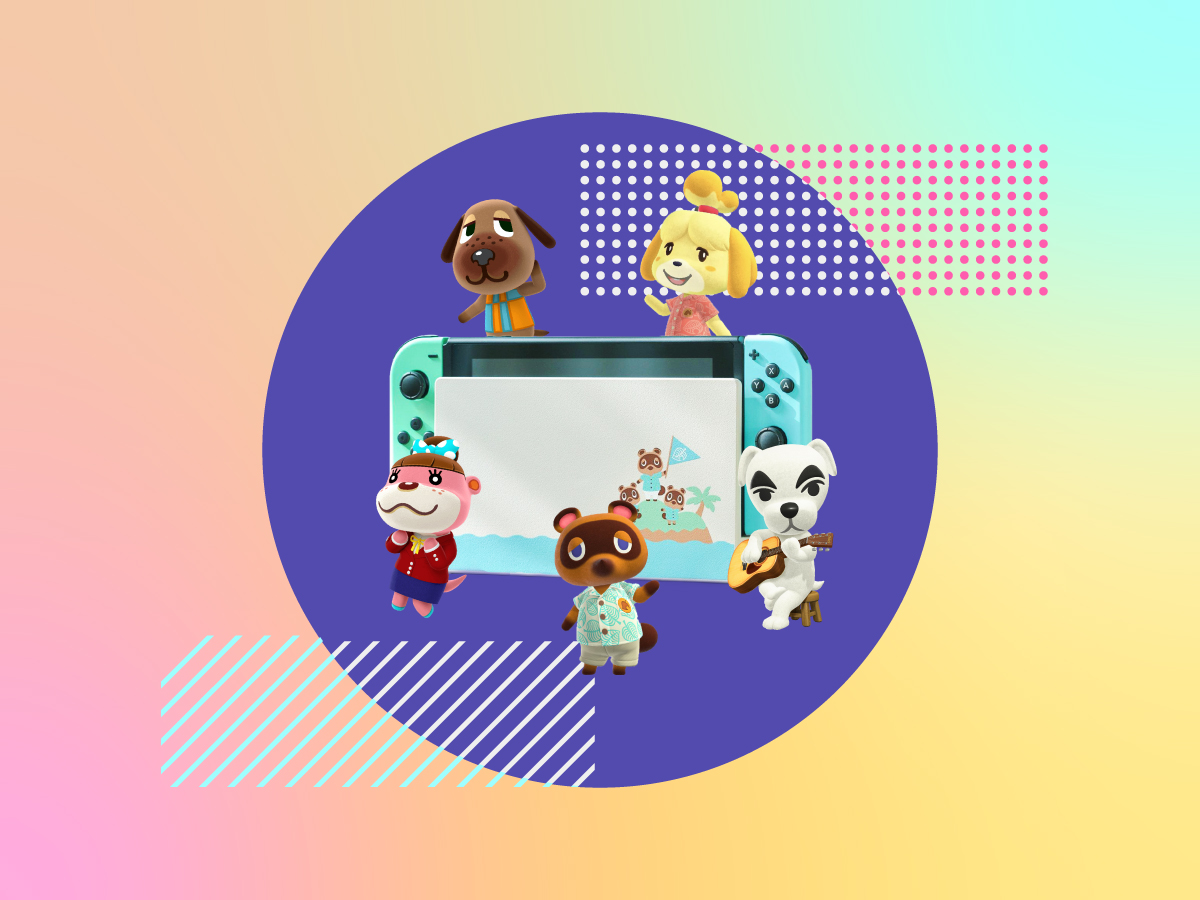

Have you visited your friend’s island?
If you’re one of the millions of people playing “Animal Crossing: New Horizons,” then you probably have. Animal Crossing, which originally released in 2001, is a social simulation game in which users must turn their island into a thriving village. Think “The Sims” in a cutesy animated landscape. In Animal Crossing, the user decorates their home, forages for food, and, yes, can visit their friends’ islands, all at their own pace.
The March 20th release of Animal Crossing: New Horizons was highly anticipated before the crisis, but once stay-at-home orders took effect, the demand soared, leading to Nintendo Switch shortages around the globe. The game was the best selling game in the U.S. in March, and was Nintendo’s third most successful game launch ever. It’s not hard to appreciate why people who are staying home to escape coronavirus would want to build an idyllic agrarian island to escape their home. As with all entertainment and media that taps into the cultural zeitgeist, the popularity of Animal Crossing can tell us a lot about consumer psychology― and can offer many lessons for brands.
While the demand for video games overall has increased, Animal Crossing is incredibly accessible for non-gamers. The game’s appeal and objectives are easy to understand, and the game is communal rather than competitive, which feeds into our need for positive social interaction. Additionally, the game promises a relaxing, welcoming space with characters are cute and welcoming, which appeals to our physiological and biological disposition toward characters that look childlike.
And the game delivers on this promise. The interface is intuitive for users familiar with interactive spaces, but for those who aren’t, tutorials and videos are widespread, extensive, and readily available. If you’re lucky enough to get your hands on a Nintendo Switch, then you can play.
During the current market disruption, consumers are breaking and forming new habits, and consumers are faced with a deluge of new information. It’s critical that brands make their value proposition clear and ensure the product is easy to use. Look for ways that you can simplify your path to purchase, product messaging, and overall customer experience.
Because Animal Crossing is so accessible, the synergies between Animal Crossing as a game and the Nintendo brand resonate with current trends. The Nintendo name inspires nostalgia for GenX and Millennials at a time when consumers are seeking out nostalgia as a source of comfort. Gamers and non-gamers alike have some sense of brand identity with Nintendo and already have positive associations with Nintendo games. Some of the more popular games offered on Switch are built off of familiar Nintendo titles: “Mario Kart,” “Zelda Breath of the Wild,” and “Luigi’s Mansion,” among others. You don’t have to be a gamer to have played Mario Kart or Super Smash Bros., and non-gamers can trust that they’ll be comfortable playing a Nintendo game. Nintendo’s multi-generation investment in building brand equity and share of heart among consumers is paying off during this critical time.
Whatever industry you’re in, you should work to identify these synergies within your portfolio. What are your longest-standing properties? Why did consumers fall in love with them (and you) in the first place? Whenever possible, speak to the brand values that initially earned your consumers’ trust. If your brand has evolved and your product offerings have diversified, look for ways to build synergies, tell a cohesive story, and set achievable consumer expectations.
Animal Crossing is a unique product offering that satisfies all of a consumer’s fundamental BASE needs (Belonging, Appeal, Security, and Exploration.) The game fulfills a sense of Belonging with social features that let you play with friends, family, and other users and interact with characters in the game. It fulfills a need for Appeal by encouraging users to design and decorate their homes and other spaces within the game and show them off to their friends. It fulfills a need for Security by providing a peaceful environment, freedom from deadlines, and the ability to control your surroundings. Lastly, it fulfills a need for Exploration by regularly hosting new events and encouraging users to discover and collect bugs, fish, butterflies, and other creatures in natural spaces—a need that’s especially strong among people with limited exposure to the outside world.
While interactive media has a distinct advantage when connecting with consumer emotions and speaking to multiple BASE needs simultaneously, all brands should consider how they’re speaking to their consumers’ BASE needs, even when those needs are less obvious. As the coronavirus pandemic stretches from an immediate crisis into a long-term “normal” of sorts, more and more consumers are looking beyond their need for Belonging and Security and are searching for ways to reaffirm their status (Appeal) and introduce some novelty and a sense of choice into their lives (Exploration). Brands should consider how they can meet these needs.
One thing people love about Animal Crossing is that the game offers a high level of customization. Users can unlock new features to enhance their surroundings, which they can design however they want. They can go where they want, complete the tasks they want, and choose from a range of activities. This provides both a sense of control and a sense of freedom that’s severely limited in everyday life, where supply chain shortages, unexpected shifts in demand, and shuttered businesses have led to limited options.
Depending on your product and industry, your brand may be impacted by some of these changes. Where you can, you should consider how you can customize and diversify your product offering, even in subtle ways. In our current marketplace, the ability to choose from a menu of options is a novelty in and of itself. Consider how you can highlight these options as a feature; for some consumers, the path to purchase is an activity of exploration that they may enjoy. As consumers combat the monotony of shelter in place, they might also be more open to paying for upgrades and special features that they wouldn’t have otherwise considered.
The perception of time as a commodity has changed significantly since the pandemic began. For the first time in recent memory, most consumers are looking to fill time rather than save time. They are also looking for structure, low-stakes puzzles, and the satisfaction of completing a task. Animal Crossing has a never-ending list of tasks, from looking for turnips, to visiting the pirates, and each task has its own reward.
Millennial and GenZ consumers are known for preferring experiences to things, and in the current climate, experiences are sorely limited. As you consider what, and how, you should appeal to your consumers, consider how you can market it as an interactive activity or sell the process. Can you find a new, fun way for consumers to think about your product? Can you provide recipes, directions, YouTube videos, or other media that can engage more consumers? And can you build in loyalty programs and rewards that will give consumers a sense of satisfaction after they engage?
Although Animal Crossing’s rise to dominance may have taken the world by surprise, it’s easy to understand the game’s universal appeal. As brands continue to face the short and long-term cultural impact of COVID-19, marketers can learn from the popularity of the game and apply its lessons to their own offerings.
You must be logged in to post a comment.